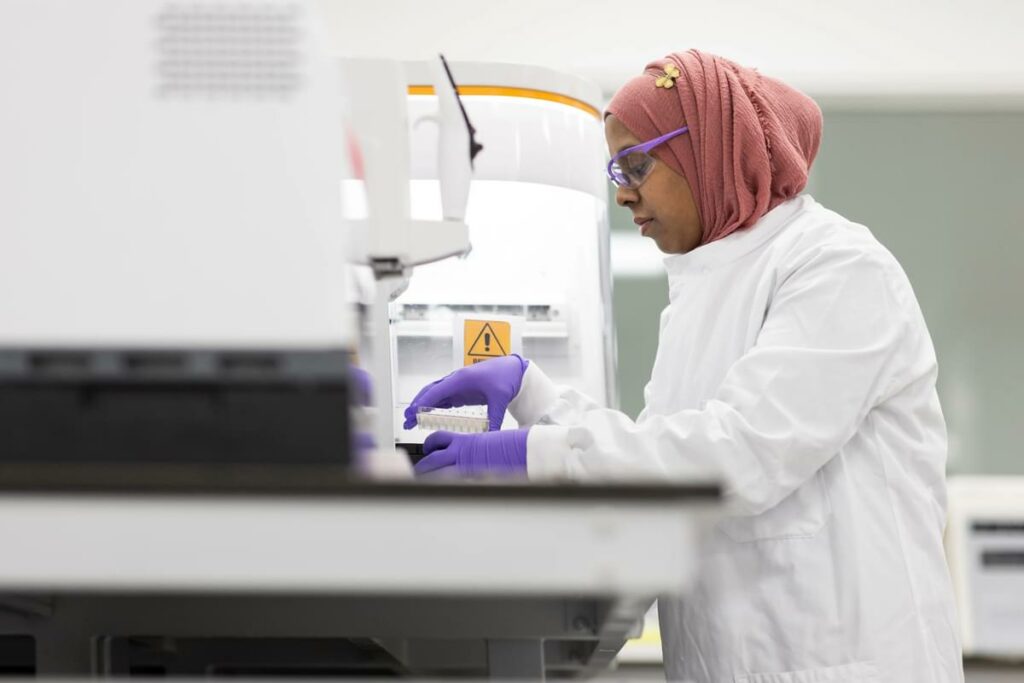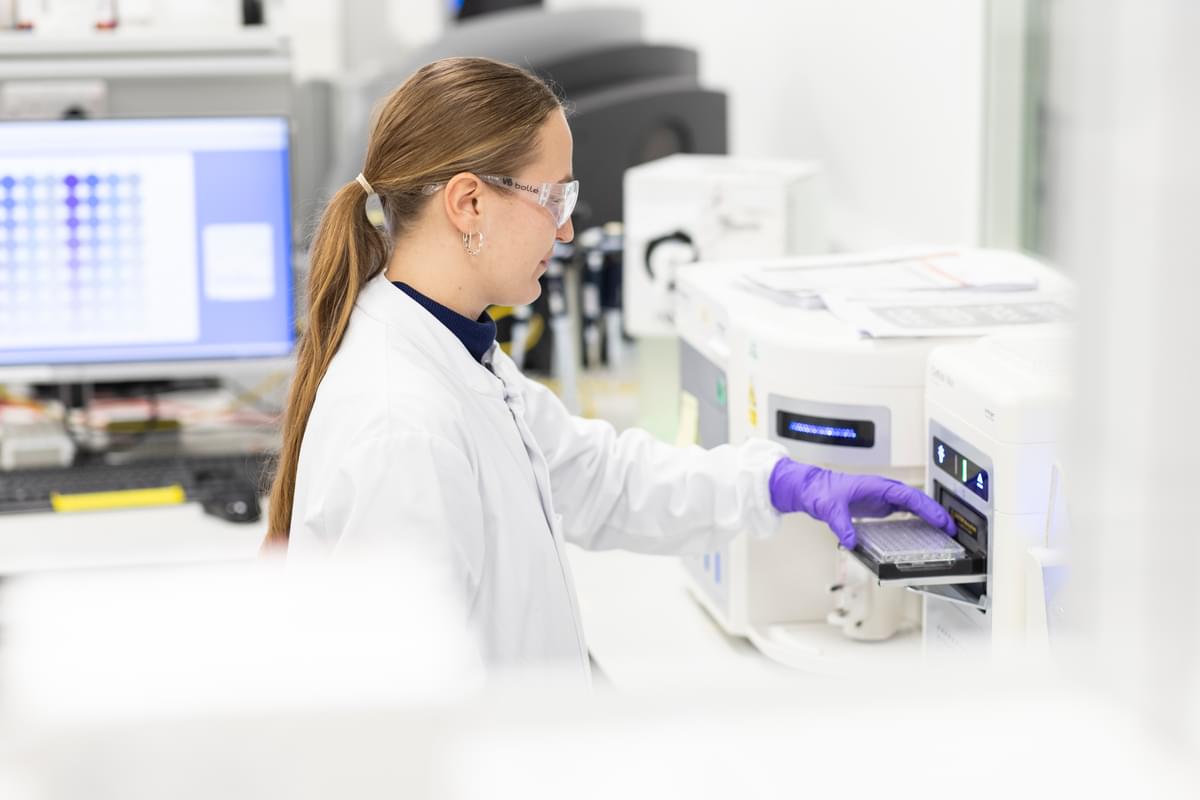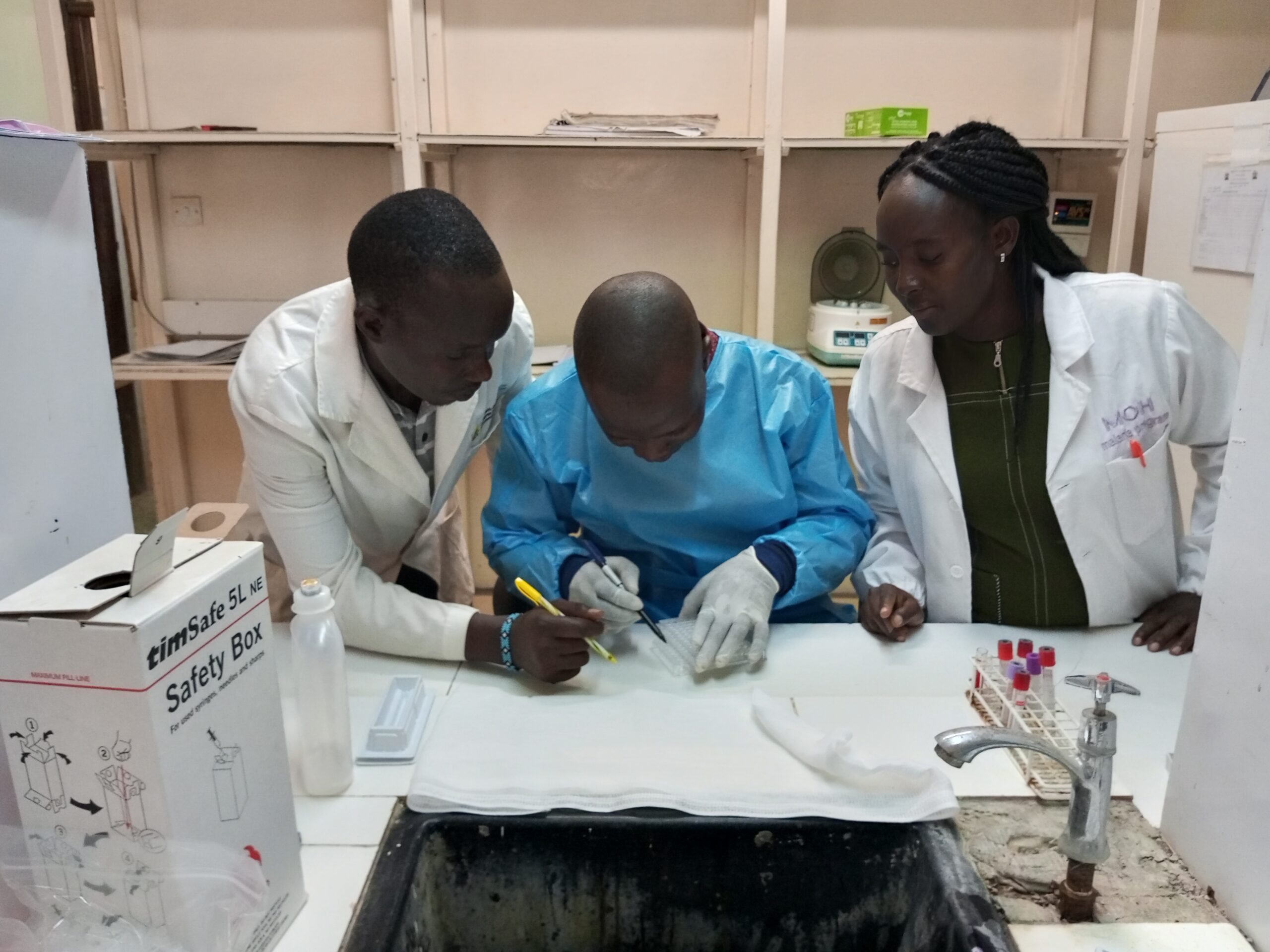Preclinical Discovery and Development of Repurposed Drug Candidates for MND
Through LifeArc’s Translational Challenge in MND, this funding programme aims to boost drug repurposing in MND by investing at least £5 million in preclinical translation.

| Funding type: | Grant |
| Total fund: | £5,000,000 |
| Maximum award: | Up to £750,000 |
| Number of projects: | Five |
| Opening date (EOI call): | 6 February 2024 |
| Closing date and panel review (EOI call): | 10 May 2024 |
| Workshop for shortlisted applicants: | July 2024 (date tbc) |
| Full application closing date: | October 2024 (date tbc) |
| Panel review: | December 2024 (date tbc) |
| Final decision: | December 2024 (date tbc) |
| Project start date: | Within 3 months from funding award |
About the call
The majority of MND clinical trials, including trials using repurposed drugs fail due to lack of efficacy. As such there remains an urgent unmet need for safe and effective MND treatments.
Ensuring success in MND clinical trials needs to start with optimal preclinical decision-making, meaning the adoption of an enhanced, evidence-based approach to preclinical research so that only the most promising repurposed drug candidates are progressed into clinical studies.
Through LifeArc’s Translational Challenge in MND, this funding programme aims to boost drug repurposing in MND by investing at least £5 million in preclinical translation.
LifeArc will fund high quality innovative proposals that set out a rigorous evidence-based approach to the preclinical translation of repurposed drug candidates and drug candidate combinations, uniquely including funding for independent replication of project results through LifeArc. This will contribute to building a strong body of evidence to enable evidence-based decision making on which repurposed drugs should enter into biomarker guided clinical studies and clinical trial platforms for MND. This includes existing UK platforms: EXPErimental medicine Route to Success in Amyotrophic Lateral Sclerosis (EXPERTS-ALS), and MND systematic multi arm adaptive randomised trial (MND-SMART).
LifeArc MND drug repurposing programme USP
- LifeArc is a hub for drug repurposing expertise and translational research.
- LifeArc is providing £5m investment for repurposed drug and drug combination approaches.
- Rigorous and evidence-based approaches to preclinical drug repurposing are a priority.
- Proposals will focus on preclinical data packages with independent replication of data.
- Better informed decisions on drug progression into EXPERTS-ALS and MND-SMART trials.
- Supporting next generation of translational scientists with beneficial ECR funding terms.
LifeArc workshop on Drug Repurposing for MND
This webinar has now taken place. A recording of the full webinar is available to watch here.
Funding and what we will offer
Through this Drug Repurposing Programme LifeArc will commit at least £5m to fund up to five successful projects as part of LifeArc’s Translational Challenge in MND.
This significant investment will be exclusively focused on preclinical translation of repurposed drug candidates for MND including drug candidate combinations.
Proposals will focus on generation of high-quality preclinical data packages and independent replication of data two areas that have been historically underfunded in academia but are critical for drug discovery.
We will fund high quality proposals from the UK MND research community and MND research groups internationally, that demonstrate the potential to transform the way in which repurposed drug candidates are de-risked for clinical trials.
We will also provide beneficial funding terms for early career researchers, to ensure programmes can attract and retain the most talented post-doctoral scientists.
In-kind contributions
LifeArc will also reduce barriers and enable access to appropriate support and infrastructure.
LifeArc can provide a hub of expertise offering translational research advice and mentorship as well as providing access to a collaborative network of potential project partners to enable the best chance of project success.
Your project will benefit from LifeArc drug repurposing know-how and capabilities to ensure your project considers all relevant preclinical, clinical and regulatory steps necessary to enable repurposed drug candidate discovery and development.
LifeArc has a track record in drug repurposing through its existing work and partnerships, with UKRI to generate a toolkit for drug repurposing; and through its partnership with Remedi4all.
LifeArc also recognises that not all applicants will have the internal resources and pre-existing relationships required for end-to-end project delivery. There will also be the opportunity to outsource defined parts of the research plan to LifeArc or Contract Research Organisations (CROs) with appropriate expertise and capabilities to conduct GLP studies to generate reliable preclinical data to inform regulatory decision making.
We will work closely with funding recipients to identify where access to LifeArc, a CRO or other partner is in the best interests of the project. However, applicants will need to articulate (at full application stage) a clear plan as to what capability, tools or facilities will be accessed to deliver the proposed research plan, including through collaboration or with project partners including outsourced CRO work. LifeArc will provide support to engage 3rd party delivery partners as needed (e.g, development of a CRO statement of works and acting as the point of contact).
LifeArc will actively engage with applicants and project teams throughout the lifecycle of the project (including helping develop the full application). Support will be tailored to individual project needs (defined at the full application stage).
Support may include:
Signposting and making connections with LifeArc delivery Partners including CRO’s repurposing/regulatory experts and public and patient engagement panels as needed to ensure project outputs are aligned with repurposing/regulatory/scientific/PPI advice.
1:1 Mentorship and advice to shape project plans including but not limited to drug discovery, disease area insight, experimental work package and milestone-based project design, intellectual property considerations and advice/signposting for the appropriate clinical and regulatory pathways.
Stage and focus of proposals
Applicants should focus their proposals on the preclinical stage of drug discovery and development for repurposed drug candidates. For guidance we would like to refer applicants to the following white paper ‘Guiding principles for drug discovery and development in amyotrophic lateral sclerosis’.
In addition, further information on the different stages of drug repurposing can be found here.
- To have a higher chance of success, applications must have existing preliminary data to demonstrate that a drug target is linked to disease, either through genetic evidence and/or evidence for disease biology involving the target.
- Existing evidence for a druggable target may include expression data in relevant tissue, linkage to ALS in humans confirmed through bioinformatic approaches, target expression studies in human tissue and evidence from relevant in vitro and/or in vivo
- Applicants must also be able to demonstrate an early case for the proposed repurposed drug candidate in MND, supported through existing preclinical evidence in relevant disease models.
- Evidence in human-based cell models that shows on-target modulation with the repurposed drug candidate results in disease phenotype modification is particularly desirable, however we will also consider projects that show clear plans to generate this necessary evidence in early milestones.
- Project plans in addition should aim to generate repurposed drug candidate preclinical data packages for target validation, efficacy, safety and PK/PD studies in vivo to demonstrate appropriate target tissue exposure and target engagement.
- Project plans should also focus on validation of available biomarkers of repurposed-drug target engagement for MND or have plans to identify and validate novel biomarkers that may be translatable from preclinical models to MND patients.
Independent replication / robustness
- Applicants will need to include replication of key results through an independent laboratory in their project plans. LifeArc can provide support and funding to facilitate this either through its own world-class laboratories or third parties. This will be an essential step to ensure data robustness and to ensure translatable results for future clinical development programmes.
Biomarker identification and development
- The development of the repurposed drug candidate for MND should be accompanied by inclusion of a strategy for appropriate target engagement biomarker identification and/or validation to demonstrate target engagement is linked to MND.
- Key outcomes of this type of study may include information on optimal drug dose for MND and if the dose level achieves desired therapeutic effects.
- Use of surrogate biomarkers to inform on the relationship connecting dose and efficacy are also encouraged.
Preclinical development projects
- Applicants will also receive support through LifeArc to generate data packages including ADME, toxicity/safety and PK/PD studies to measure levels of target tissue exposure, target engagement and drug pharmacological activity consistent with MND TPPs.
- The preclinical development phase of the repurposed drug candidate may be carried out by partner CRO’s to GLP standards, this provides robust assurance that the repurposed drug candidate is likely to be safe and effective in the clinic. This phase will be complemented by use of relevant biomarkers that may also improve the use of the therapeutic in patients.
- Repurposed drug candidates that have been rigorously tested and approved will then exit into existing experimental medicine platforms including EXPERTS-ALS. This will include a progression strategy for clinical development, regulatory process, and potential involvement of commercial organisations.
What we are looking for
- We will fund high quality innovative proposals from the UK MND research community and MND research groups internationally. Applicants proposals should be able to demonstrate the potential to transform the way in which repurposed drug candidates are de-risked for clinical studies.
- Due consideration should be given to the Intellectual property and ownership of the repurposed drug. This should be described within the full application and if seeking to use a branded medicine, involvement of the owner/manufacturer is ideal. Involvement of a manufacturer of a generic drug is also desirable.
- LifeArc particularly wants to support approaches to drug repurposing in MND through multi-disciplinary co-operation as well as combining therapeutics with biomarkers.
- Applicants must be able to provide an evidence-based rationale for the proposed repurposed drug candidate in MND and should be able to articulate a robust milestone driven plan in their application.
- Applicants are encouraged to take a collaborative approach to their application, spanning different disciplines and organisations, to consolidate skills and resources within the research community. Academic institutions and SMEs are welcome to apply for funding.
Eligibility
To apply for funding, you must be based at one of the following organisations:
- Academic organisation
- SMEs
Projects should be collaborative, and applicants will be required to demonstrate that the assembled team have the necessary experience, expertise and access to facilities to deliver the proposed research plan.
The principal investigator should have demonstrable experience in leading and managing large-scale collaborative projects.
Out of scope
New drug discovery projects including but not limited to, high throughput screening, novel hit to lead drug discovery and medicinal chemistry development, is not eligible for support.
This is a call specifically for repurposed medicines. New drug discovery projects, including drug screening approaches will not be considered.
Application process and timelines
Projects will have a clearly defined scope and a plan that defines the key deliverables. These deliverables will lead to defined milestones and go/no go criteria allowing the project to be monitored ensure progress to agreed quality/time and cost targets. These will also help to determine the likelihood of achieving the defined outputs and outcomes.
Project progress and payment will be assessed by achievement of milestones that will be monitored within joint steering group meetings, which will include LifeArc representation, throughout the lifecycle of the project.
During the application and at a meeting for shortlisted applicants there will be an opportunity to seek advice and input with regards to various aspects of the application. This may be particularly relevant for describing pathway to the patient, IP considerations etc.
A two-stage process is being used to select projects:
- A call for expression of interest (EOI) will open from 5 February and close at 23.59 GMT on 10 May 2024.
- Submissions will be reviewed, and shortlisted applicants will be invited to attend a workshop to receive guidance on shaping a successful application. Part of this will involve 1:1s to discuss progression strategy as required.
- Shortlisted applicants will be invited to enter into a confidentiality agreement (CDA) as part of the second stage of the application process.
- Full applications must be submitted by October 2024
- Full applications will be subject to due diligence (LifeArc diligence on IP and path to patient/commercialisation as well as review by external and internal peer reviewers). The full applications and diligence will be considered by an expert panel. Consideration will be given to:
- the strengths and weaknesses of the application, in the context of the assessment criteria and scoring guidance that the panel will use.
- delivering a balanced assessment of each application.
- the extent that the application is in accordance with LifeArc’s charitable purposes.
- Panel review will be completed with decisions communicated in December 2024.
- While LifeArc will have the ultimate decision-making authority in respect of the applications, it will be strongly guided by the expert panel’s recommendations.
- Successful projects are expected to commence experimental studies no later than three months following funding award.
Terms and conditions of funding
We will provide full details of funding award terms and conditions for this research programme in advance of the funding call, which may be negotiated on a case-by-case basis with recipients of funding.
This will include obligations from all parties around the project plan, the handling and ownership of IP and pro-active reporting and monitoring of project outputs for patient impact.
Apply for funding
Guidance on the scope of this funding call is provided below. Please read carefully before completing the Expression of Interest Application form.
LifeArc will work with you throughout your project funding journey, starting with the opportunity to receive 1:1 support prior to submitting your Expression of Interest (EOI). If you have a project that would fit the scope of this call, we would love to hear from you. Get in touch with us at MND@lifearc.org to discuss your application.
Project Scope
Projects that are in scope for funding:
- Preclinical stage projects for MND using a repurposed drug or drug combination.
- Applications that can demonstrate evidence for a repurposed drug or drug combination and a relevant MND drug target.
- Earlier stage applications with target validation plans in the first milestone to evaluate repurposed drugs or drug combinations against a relevant MND drug target.
- Projects that also include biomarker guided approaches for repurposed drug-target engagement, mechanism and efficacy. We encourage applicants to consider the utilisation of biomarkers that may be suitable for future clinical research studies.
Projects that are out of Scope
- MND research that doesn’t involve drug repurposing; fundamental MND research, MND target identification.
- New drug discovery projects, including but not limited to unbiased drug screening, novel hit identification and novel hit-lead medicinal chemistry.
- Clinical phase drug research and development including experimental medicine and clinical trials of repurposed drugs.
- Other stand-alone technologies without a repurposed drug (e.g., diagnostics, delivery methods, biomarkers, model development).
In preparation for your submission, we would encourage you to read the following white paper ‘Guiding principles for drug discovery and development in amyotrophic lateral sclerosis’. Further information on the different stages of drug repurposing can also be found here.
EOI submission deadline
Submit your completed EOI form as a pdf by email to MND@lifearc.org by 23.59 on 10 May 2024.
Contact us
In submitting your personal data via this form, you consent to being contacted via the details provided so that your enquiry can be responded to. If you would like your data to be removed, please email dataprivacy@lifearc.org.
Please see our Privacy Policy in relation to the personal data you submit to us through this page.
Latest news
-

LifeArc launches £40m research centres that will unlock new tests, treatments and cures for people living with rare diseases
Read more: LifeArc launches £40m research centres that will unlock new tests, treatments and cures for people living with rare diseases -

First-of-a-kind plan announced to get more children access to cutting-edge, proven gene therapy treatments for rare diseases
Read more: First-of-a-kind plan announced to get more children access to cutting-edge, proven gene therapy treatments for rare diseases -

New £6.2m partnership will help to eliminate a deadly disease affecting children and vulnerable people in Kenya
Read more: New £6.2m partnership will help to eliminate a deadly disease affecting children and vulnerable people in Kenya
